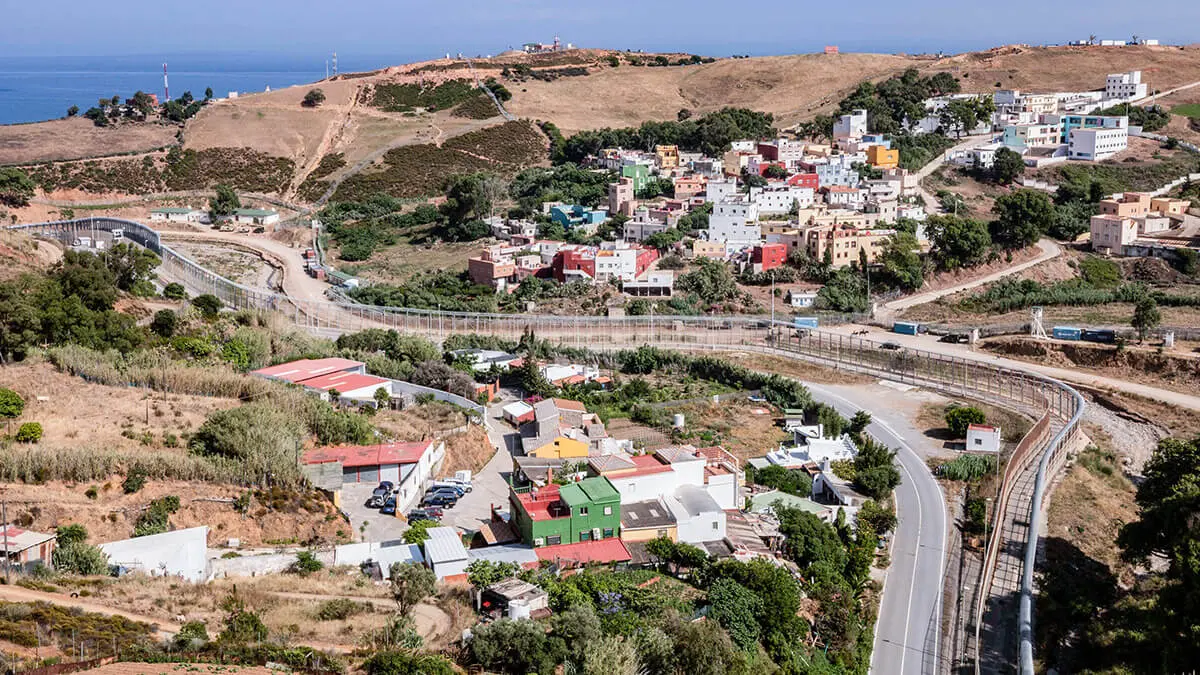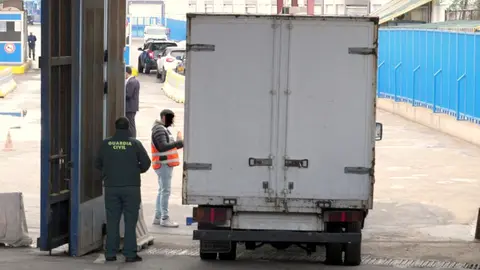The solution for Ceuta and Melilla is a shared economic future agreement

The governments of Spain and Morocco continue to confuse public opinion in both countries, and in particular the population of Ceuta and Melilla, with ‘the imminent opening of customs’, with ‘respect for the import-export of goods’, and with the implementation of ‘the application of the political agreements’ reached between Spain and Morocco during the visit of Spanish President Pedro Sánchez to Rabat in April 2022 and his meeting with King Mohammed VI.
The ‘question of Ceuta and Melilla’ has no political or sovereignty solution for the moment. Spain cannot abandon the ‘Spanishness’ of the two cities, nor can Morocco renounce the ‘return to the mother country’ of what it calls ‘occupied presidios’.
Politicians and historians from the three sides of the triangle (Morocco-Spain-the enclaves) cannot, for the moment, present any viable and definitive solution to the problem.
The only pragmatic way forward is to lay the foundations for a historic geo-economic agreement between the three parties, to make the enclaves a link for rapprochement between the two shores of the Mediterranean and a driving force for economic and commercial development between Spain and Morocco, between Europe and Africa.
The Hong Kong experience shows that there are temporary solutions to overcome barriers that hinder the development and modernisation of countries and enclaves. China and Great Britain reached an agreement to establish a 50-year period of ‘autonomy’ for Hong Kong, based on the well-known formula of ‘one country, two systems’ (Communist China accepted the existence of a capitalist Hong Kong). In the case of Ceuta and Melilla, we could talk about ‘one country, two flags’, since the economic system is the same on both shores of the Mediterranean.
It is true, however, and it cannot be claimed otherwise, that the case of Hong Kong is not politically, historically, culturally or socially the same as that of the Spanish enclaves in North Africa. But the issue is not to settle the question of ownership and sovereignty, but to allow for joint and shared development.
Considering and accepting, for example, for a mutually agreed period of time, an Associated Region between Morocco and Spain, including the enclaves and perhaps some other Moroccan territory, would allow the movement of goods and people as something natural and necessary.
We would not be talking about customs, but rather about offices for the administrative control of the passage of goods and the supervision of the flow of people. Moroccan, Spanish, Ceuta and Melilla exporters and importers would be subject to the same economic and commercial rules established in the Associated Region Agreement. An agreement that would regulate reciprocal investments, the creation of joint ventures, the sale of land and real estate, etc.
Talking about ‘customs’, ‘migration quotas’, ‘tariffs and taxes’, ‘work permits’, as is currently the case, is to avoid the underlying problem and to distract the public for political and electoral reasons.
The Spanish government knows that the Moroccan government will never sign a bilateral agreement in which it recognises the existence of borders between the enclaves and the territory of the Kingdom and that can be registered as such in the relevant international organisations: UN (United Nations), WTO (World Trade Organisation), GATT (General Agreement on Tariffs and Trade), EEC (European Economic and Social Committee). Just as the Moroccan government knows that its Spanish counterpart cannot sign away ‘Spanish sovereignty’ over the enclaves and transfer it automatically to Morocco in exchange for juicy economic or commercial compensation.
The only possible scenario is to create a transition period agreed between the three parties. And this is what is being planned within the institutions, both in Morocco and Spain and in the territorial enclaves in question.
What the Muslims, Christians, Jews, Buddhists and agnostics of Ceuta and Melilla are concerned about is the future of their children, their education, their health, their work, their housing... In a word: their economic and social progress. There will be time to talk about flags, anthems and borders later.



